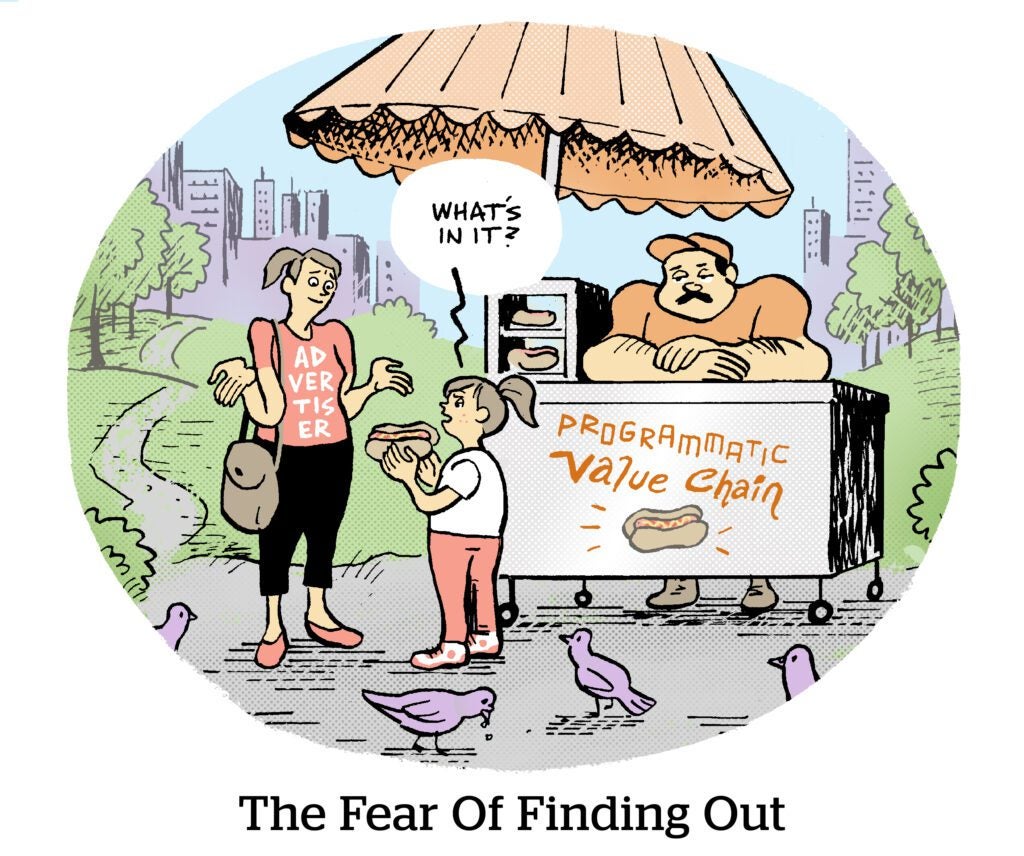The AdExchanger Commerce Media Newsletter often gets into the weeds on how retail media and programmatic ecommerce works.
Sometimes, though, the category needs a macro-level perspective. That’s why this week’s edition is taking a look at the knife’s-edge balance that Chinese apps and ecommerce marketplaces must strike at the start of the second Trump administration.
Not just TikTok
TikTok is getting a lot of attention right now, and its disappearance from Apple and Google US app stores is a blow to advertisers and ecommerce (which we’ll get to).
But I want to zero in on other Chinese ecommerce players that have taken on the American internet.
Temu and Shein revolutionized ecommerce by manufacturing impossibly cheap clothing and merchandise in China and shipping it to the US. Now, however, these Chinese companies and their business models are deeply at risk in light of American political changes.
Last week, President Trump signaled that he would end the “de minimis” rule, which allows items with an aggregate value of $800 or less per day per person to enter the US without being subject to custom duties.
This rule change would add a new cost to almost every Temu or Shein shipment to the US.
Separately, these companies are being accused of patent infringement. AdExchanger reported last year about how Krak’in, a brand that makes a gimmicky product for shotgunning beers, was only able to prevent Temu from manufacturing and advertising a direct knockoff using the brand’s trademark by suing and settling out of court. Shoemaker Dr. Martens sued on similar grounds last year.
Also last year, Arkansas Attorney General Tim Griffin sued Temu, alleging problematic data collection practices.
“You may have seen … these unbelievably low prices, and you may be thinking, ‘How can they sell that so low?’” Arkansas AG Griffin said (quipped, really) during a press conference announcing his state’s suit last June.
Aside from the Temu app’s data collection practices, the marketplace sells impossibly cheap TVs manufactured by Chinese companies that American consumers likely wouldn’t recognize. It will be a question for the Trump administration in terms of how to regulate those data streams and whether other Chinese businesses that put technology in American homes and phones constitute a threat.
But we do have a clue.
The new law that aims to ban TikTok is also a warning bell for Temu. The law demonstrates that the US government views Chinese businesses with data servers in China as a national security threat if not overseen by American stakeholders.
The third-party problem
How will Chinese advertisers change their practices if sweeping political changes make it tougher for cheap Chinese ecommerce sellers to operate?
That’s a question that cuts right to the bottom lines of many American merchants and retail media players.
Last year, Chinese third-party sellers became an outright majority of all sellers on Amazon, and they dominate the top sellers list, according to Marketplace Pulse data. Walmart’s third-party marketplace is now made up of 30% Chinese seller accounts, up from 20% a year ago.
Even Etsy, which sincerely wants to rid its platform of Chinese sellers peddling cheap plastic merch – merch that goes against its handmade ethos and its seller policies – is in an awkward bind. Etsy’s growing ad business is one of the company’s few bright spots. And, uhhh … Chinese seller accounts are among Etsy’s biggest ad spenders.
Temu, meanwhile, has been the largest advertiser on Meta in recent years, following a years-long run of TikTok as one of the biggest ad spenders on Meta, Snapchat and YouTube.
Whether from third-party sellers or massive consumer brands, Chinese advertisers have been a pillar of online ad revenue in America.
Back to TikTok
TikTok’s own ad budget aside, the app has earned a place at the heart of social commerce and internet-driven purchases.
TikTok’s share of paid media traffic went from 12% in Q4 2023 to 36% in Q4 2024, according to data from MikMak, a commerce marketing company that promotes CPG and ecommerce brands via social ads and influencers.
After TikTok was removed from Google and Apple app stores on January 19, TikTok dropped to 0.5% of MikMak’s traffic. This week, however, TikTok bounced back to roughly 18% of all paid media traffic. The relative beneficiaries of TikTok’s drop-off have been Alphabet (including Google Search, YouTube and the DV360 DSP) and Pinterest, MikMak CEO Rachel Tipograph told AdExchanger.
Still, TikTok’s capacity to clear grocery shelves is legendary. Last November, I could not find cavatappi pasta, my four-year-old’s favorite pasta shape. It turned out that there was a run on corkscrew pasta due to a callout in a viral TikTok recipe. Another popular TikToker has caused a global cucumber shortage. Literally.
Could Pinterest sell out grocery store shelves across the world? Could Alphabet for that matter?
Regardless of how you feel about it, Chinese companies have become a force of nature in American commerce.
Nobody yet knows whether the second Trump administration will lead to more Chinese advertising and product sales or a sharp restriction on Chinese imports. But there is one thing to be sure of: Whichever changes occur will have a resounding impact on retail media.













